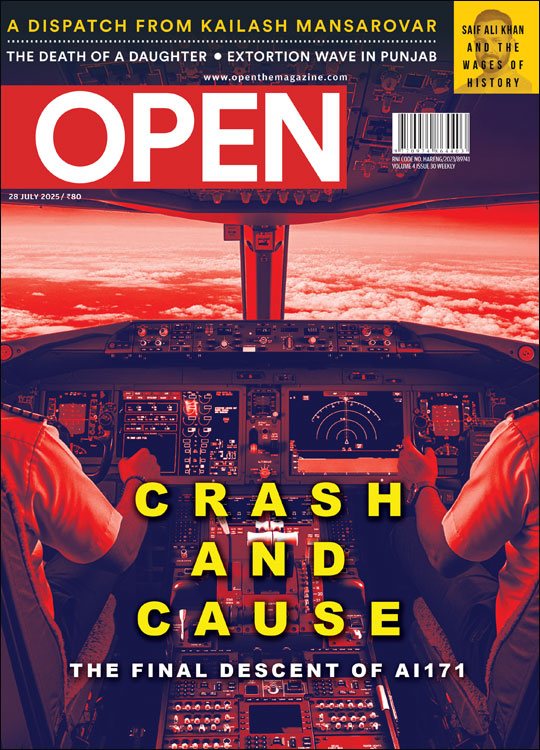/wp-content/uploads/2016/02/Responsiblyyours1.jpg)
At Bharat Petroleum, Corporate Social Responsibility is not a new phrase. The company has been working for the community since its inception, making ‘giving back’ one of its core business philosophies. In the past four decades, as the company grew to the status of a Fortune Global 500 company, its funds for CSR have also seen a steady increase. With the mandate of 2% for CSR in the Companies Act, BPCL’s budget for community work has now grown to Rs. 112 crore in the fiscal year 2015-16. Since 1976, when the erstwhile Burmah-Shell was taken over by the Government of India to form BPCL, the company has grown to become one of the leading players in the country’s energy sector. One of the vision statements of the company – ‘We are a model corporate entity with social responsibility’ – has been the guiding principle of how BPCL not only conducts its business, but also how it relates with community and people. According to Mr. S. Varadarajan, Chairman and Managing Director, this should be the real source of inspiration. It has always striven to make the organisation a ‘great place to work’ for its employees and with its core purpose of ‘Energising Lives’, is constantly endeavouring to make the lives of the community better and rewarding.
BPCL’s current CSR strategy has evolved from past experiences on numerous projects that were implemented and completed across India. They believe in jointly working with experts, non-governmental organisations, community leaders and employees of the company to implement their CSR goals and objectives. With a focus on learnings and innovations, BPCL’s CSR follows a three-tier implementation approach. First, they work directly with the company’s stakeholders in their various businesses’ value chain – especially those who belong to the underprivileged communities. Second, they work with marginalised communities who reside in and around BPCL’s various businesses and refineries. And third, some of their projects are targeted directly for the Scheduled Castes/ Scheduled Tribes and Other Backward Castes with the sole intention of nation building by helping in uplifting them socioe-conomically.
Going forward, BPCL has decided to continue with its support in five thematic areas: Quality Education, Skill Development, Water Conservation, Health and Hygiene and Community Development. Presently, BPCL has partnered with NGOs, and their interventions are spread across multiple states, districts and villages/ urban places in India. Apart from funding these organisations, BPCL takes keen interest in the implementation of their projects through regular monitoring of determined social impact, providing capacity building and training workshops and sharing best practices with all partners.
EDUCATION: From Literacy to Learning
Although enrolment of students in schools has gone up due to the implementation of the Right to Education Act (RTE), the levels of learning continue to be abysmally low across India. According to the Annual Status of Education Report (2014), of all students enrolled in Class V in government schools in rural India, approximately 50% cannot read at Class II level. As in the past, BPCL will continue to support its core CSR thrust area of Quality Education with the belief that education is necessary to bring about social equality, improve standards of living and also overcome issues of poverty or employment.
Under BPCL’s education programme, support to education has expanded from providing access to primary education, to providing avenues of improving the quality of education in both primary and secondary schools. Through its various partnerships, BPCL has tried to address the issue holistically by providing appropriate teaching-learning materials, improving school infrastructure, opening libraries under RTE, involving school drop-outs in bridge courses or skill development classes, improving analytical skill of students through scientific learning, and bringing them up to date on Information Technology. BPCL also understands that despite support to all the above, learning still cannot be high quality unless the skills of teachers are improved. A teachers’ training course ensures that teachers are encouraged to learn more themselves, which will motivate them to teach better.
Highlights
» Project CAL (Computer Aided Learning) aims at improving learning levels of children by making them digitally enabled through a technology interface. The project is now implemented in 45 centres in Jaipur (Rajasthan), Mumbai, Uran & Solapur (Maharashtra) and Lucknow (Uttar Pradesh) reaching 38,000 children.
» Science Education Project provides experiential science learning to 90 government schools in Solur, Karnataka and 25 government schools in Mumbai, Maharashtra where they learn about various topics like matter, heat, compounds, energy, friction, separation of mixtures, conductors and insulators, respiration of plants, animals, living & non-living things, solar system, eclipse, properties of water, speed, electricity etc. through experiments.
WATER CONSERVATION: Being Water Positive
With changing climate and unsustainable practices, water scarcity is soon going to be the biggest crisis facing most of us in future. Water scarcity has already led to limited access to drinking water, poor sanitation practices, crop failure etc. Recognising this, BPCL had started work on water conservation with a focus on providing drinking water. Assessing the criticality of the situation, BPCL has expanded its water conservation programme under Project Boond to include soil conservation, groundwater recharge and providing water for agriculture and livestock. The geographical focus has been water scarce and drought prone areas such as Rajasthan, Andhra Pradesh, Karnataka and Maharashtra.
Through the various projects under Boond, partner organisations have been working to revive cascade tanks and local ponds which were traditionally used to store and harvest rain water but are now defunct. After desilting, bunds are reinforced and trees planted around to conserve both soil and water. Some of these revived tanks are used for fishery and fruit bearing trees planted around the bunds provide farmers with extra income. In all regions, the project has been successful in building indigenous structures like ponds, wells, gabions and cordoning off springs for sustainable use of water. Village Water Committees, Farmers’ Groups and Self-Help Groups ensure community participation through managing, implementing and operating the projects. To also ensure continuous participation by communities, farmers are trained in best practices and skill development and encouraged to make financial contributions.
Highlights
» In Vidarbha, a unique phone- based system provides all information related to crop management to farmers. Till now, the project has covered 1773 farmers, of which 1080 are women farmers.
» In Karnakata, 35 water tanks have been revived. »In Mokhada, Maharashtra, over 37 crore litres of water has been collected, reducing the community’s dependence on water tankers by 50%.
SKILL DEVELOPLMENT: Re-drawing Lives
Working on the philosophy that every corporation should strive to create an environment where all citizens feel equally involved in the process of economic growth and find hope for a better future, BPCL has included skill-building in its CSR plans to bring about inclusive growth. The targeted communities for skill development and self-sustainability are the most vulnerable of India’s population – women, people with special abilities and unemployed youth. The goal is to empower them so that they can live out their ambitions like the rest of the country by taking advantage of market opportunities.
Kofi Annan, former Secretary General of United Nations, had often reiterated that the only way to reduce poverty, promote sustainable development and build good governance is through gender equality and empowering women. BPCL has been helping women in Uttar Pradesh achieve economic independence by training them in chikankari and zardosi work. Forward and backward market as well as bank linkages have also been provided for self-sustenance. To make youth employable, training is being provided across four states in skills required for IT, Hospitality and BPO industries as well as auto-mechanics, farm-machinery repairing, vermi- composting and nursery development. The differently-abled are the most marginalised when it comes to employment. BPCL’s skill-development programme helps the visually challenged people learn life skills as well as employment skills such as handloom weaving, acupressure, massage and skills required for BPO and IT sectors. BPCL stays in touch with these students to help them with issues or challenges during and post-placement, thereby ensuring that they are well integrated into society and living a life of dignity.
Highlights
» 1500 women have been trained in Uttar Pradesh in chikankari and zardosiwork which have helped them earn an average monthly income of Rs. 3500-4000.
» Around 1500 youth were trained in Maharashtra, Jharkhand, Bihar and Madhya Pradesh who are now earning an average monthly income of Rs. 4500-6000.
» Encouraged by the phenomenal response to BPCL’s training project for the differently-abled, future plans are being finalised to extend the programme into more states and also reach out to 2500 people.
HEALTH: People’s Well Being
BPCL’s health projects cover three diverse issues. Truckers who work for the corporation are vulnerable to eye problems and blindness due to their travel and work conditions. A Mobile Vision Centre in Thane provides free eye check-ups and medicines, and spectacles at a subsidised cost. This centre is situated in a fuel station which has a footfall of 12,500 truckers every day.
To reduce maternal mortality and malnourishment in rural and tribal women of Karnataka, Chhattisgarh and Maharashtra, BPCL has been promoting and ensuring institutional care and service delivery, enrolment in Ante-Natal Care, and providing iron and folate supplements for prevention of anaemia during pregnancy.
Children are also provided with primary immunisation. To ensure the proper functioning of government mechanisms in rural areas, BPCL trains Primary Health Centre staff including ANM (Auxiliary Nurse and Midwife), ASHA (Accredited Social Health Activist) and Aanganwadi workers. Local women volunteers are trained to raise awareness in the community on health related schemes and matters. Various events and activities like screening camps, mother’s day, group discussions etc. also help in changing the attitude of the people in the community.
BPCL has also partnered with L.V. Prasad Institute to support their ‘Make a child smile’ programme to provide a home-like fun filled space and experience for children who visit the institute for cancer treatment.
COMMUNITY DEVELOPMENT: For Self-Sustainable Communities
Bharat Petroleum looks at community development from the perspective of providing various opportunities to socio-economically backward communities and empowering them to improve their lives. Projects in various villages have been able to provide people with alternate livelihood options such as fishery, goatery, duckery, horticulture, tailoring etc., start health clinics and health related awareness campaigns and computer classes for children, youth and women.
SWACHH BHARAT: Cleaner and Healthier Country
Apart from its comprehensive CSR projects, BPCL has been implementing initiatives under the Swachh Bharat Mission. Since October 2014, BPCL has conducted 5429 cleanliness promotional campaigns, 466 cleanliness drives and 112 walkathons to create awareness on health and sanitation across the country. They have also helped in the construction of 1910 toilet blocks in government schools in 26 districts across seven states. BPCL has adopted the river Chitrapuzha in Kochi, Kerala and is committed to its desilting and maintenance. Under ‘Suchitwa Mission’ BPCL has collaborated with the municipality of Brahmapuram to treat and dispose 150,000 MT of solid waste.
BPCL’s core purpose of ‘Energising Lives’ is not just applicable to its products and services, but also toits employees and communities that it works with. It is this facet of the company which is valued and cherished by consumers and peoplea like. With 40 years of fueling dreams and impacting lives, BPCL’s work with the community has just begun. In future, its well-laid and robust CSR strategy will continue to impact more and more people, who according to BPCL, are its true inspiration.
About The Author
CURRENT ISSUE
MOst Popular
3

/wp-content/uploads/2025/07/Cover_Crashcause.jpg)









More Columns
Bihar: On the Road to Progress Open Avenues
The Bihar Model: Balancing Governance, Growth and Inclusion Open Avenues
Caution: Contents May Be Delicious V Shoba